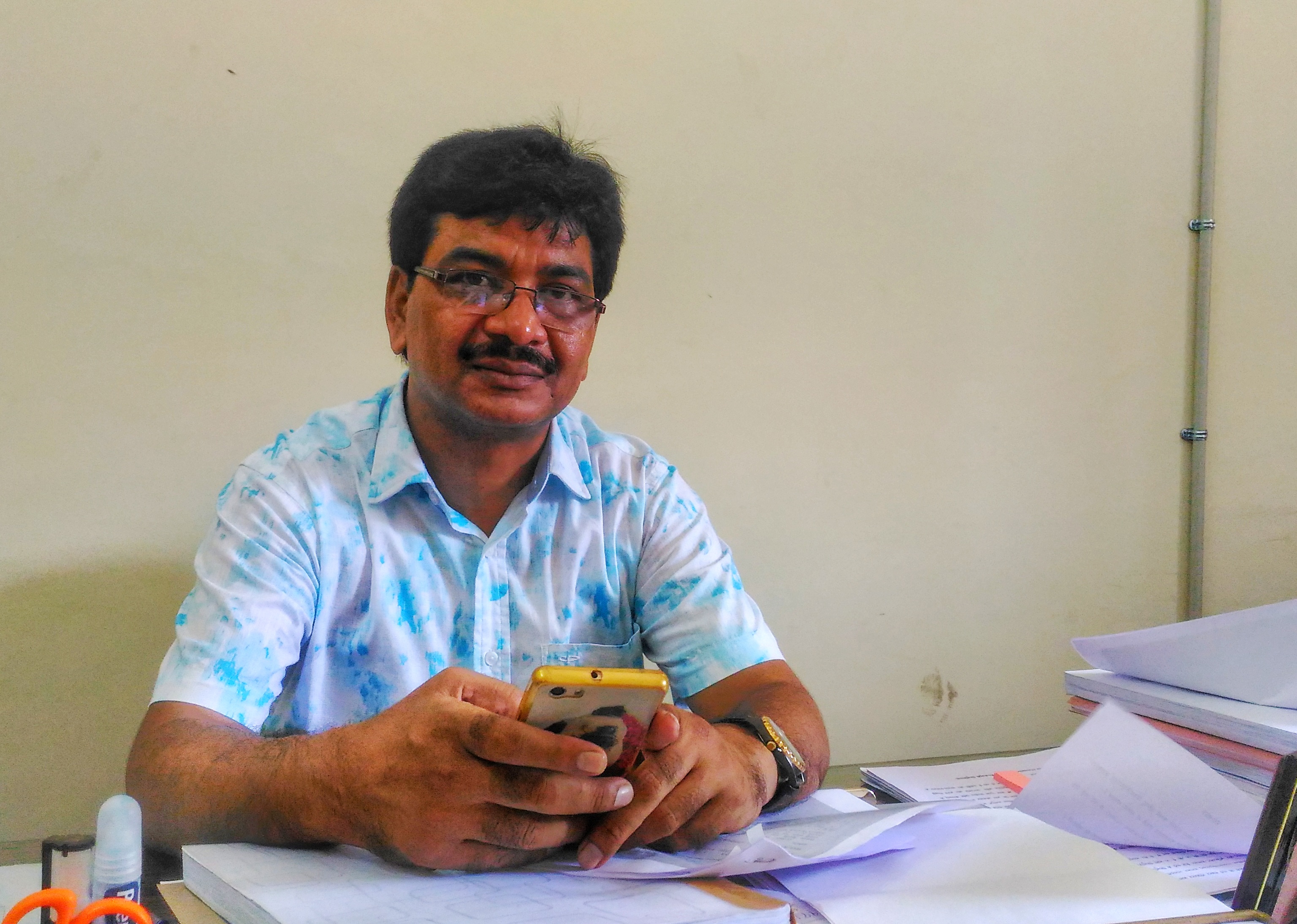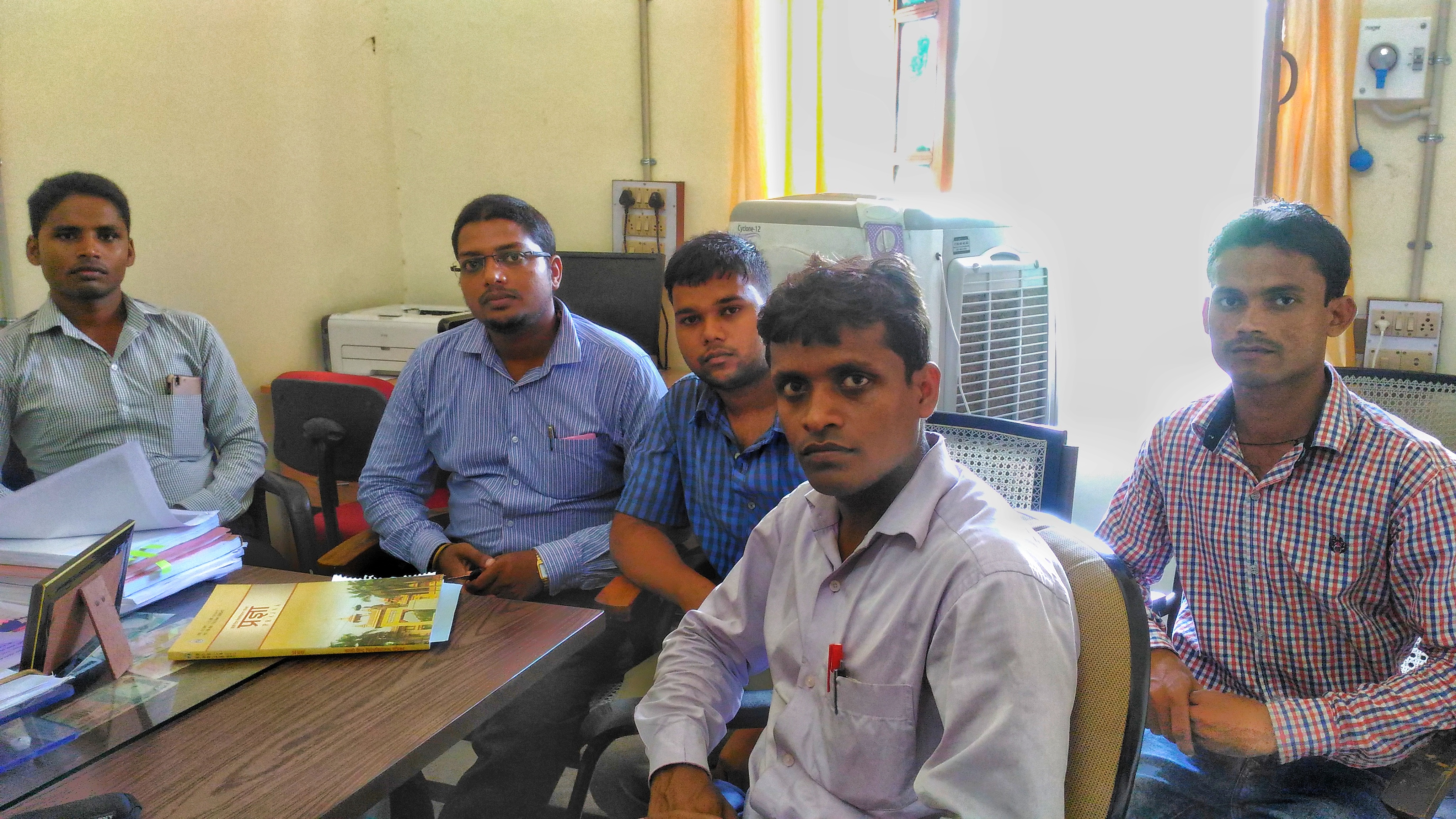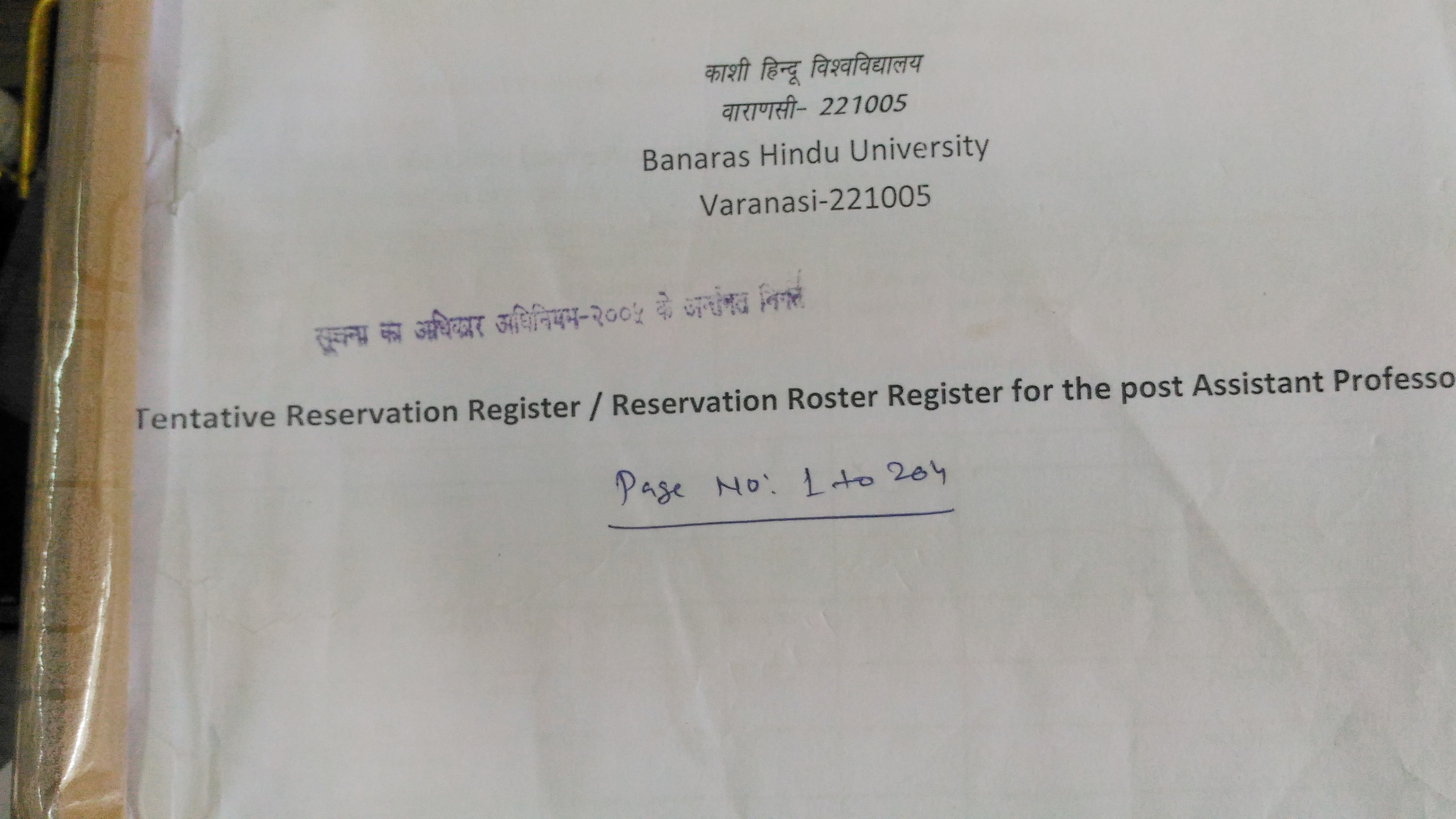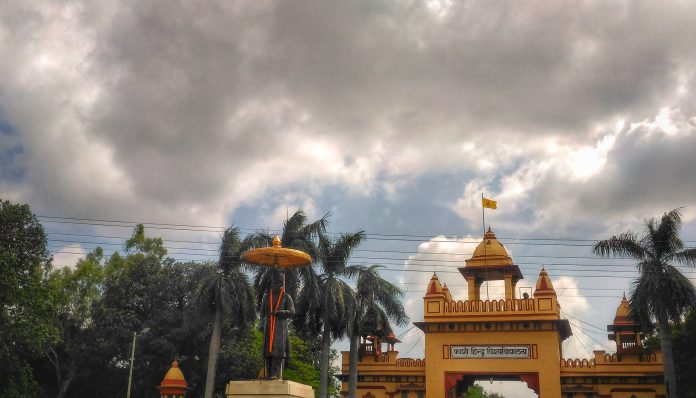By Siddhant Mohan, TwoCircles.net
Earlier this month, we had written about how Banaras Hindu University (BHU) was defying reservation in the appointment process and discussed how the Vice-Chancellor at BHU is determined to accommodate upper caste candidates on the seats which were meant for reserved category.
It was found later that BHU was playing with the appointment roster to make the ‘adjustments’ for upper caste students.
An appointment-cum-reservation roster is a large register or roll which lists all available, filled and vacant seats with the proper description of reservation quota applied on them. A roster is important for making the appointment process transparent and unobjectionable in terms of reservation quota. Moreover, for appointing people to permanent posts in a government body, a roster is issued and made public. It is also a fact that a roster must be firm and definite so that no deviation could be made from it.
But contrary to the above facts, BHU administration created a roster but did not make it public. The University also refused to deliver it when candidates and other persons asked for it through RTI. But when the roster was delivered, it was found to be ‘tentative’, which is against the guidelines of the Department of Personnel and Training (DoPT), which comes under Ministry of Personnel, Public Grievances & Pensions that mandates the formation of a definite roster and common roster for permanent appointments.

Not only BHU administration made a tentative roster and hid it for ‘unknown reasons’, but they also made it against the model roster form notified by the DoPT. As per the DoPT’s guidelines, a reservation roster must have at least 13-point-columns out of the 15-points mentioned. And DoPT also makes it necessary that no column or cell should be left empty.
But the ‘tentative’ roster made by BHU has only 7 or 8-point-column, where various important and salient points are missing. Ideally, the roster should have 15 columns detailing each and every aspect of employment. However, not only has the BHU administration used less columns, it has also left some of these columns empty, like posts vacated after retirement, number of backlog vacancies, date on which the post was vacated etc.
Ideally, a reservation roster must mention the date of creation and date of circulation of a certain post, but the BHU’s ‘tentative roster for the post of associate professor’ has left this information for many seats, thereby indirectly helping upper caste candidates.
University professor Mahesh Prasad Ahirwar explains the rationale behind this. “When you make the roster in just three days to hurry up the appointment process, you do make such mistake deliberately. The tentative roster has information of various vacant positions are missing, and on them, BHU is appointing people overnight.”
Moreover, a reservation roster must have information about year of recruitment cycle, details of backlog vacancies, details of the person appointed, date of appointment, whether the person is SC, ST or OBC, whether the seat was filled with unreserved candidate or reserved candidate, number of reserved vacancies appointed on backlog vacancies and other details. But BHU has missed such information at several spots on the roster, especially at the places where the positions belong to SC, ST or OBC categories.
According to the tentative roster, posts were generated in various departments but the date and reference of their generation have not been mentioned.

Looking at the tentative roster, one can see how BHU has smartly played with the vacant positions. When the posts belonging to unreserved category were filled with the candidate of reserved category, the roster mentioned that post as ‘occupied by SC/ST/OBC’, but the same roster does not mark the reserved seats as ‘occupied by General’.
University has downgraded and converted various posts to the assistant professor to ease out the accommodation process of upper caste candidates.
Various research scholars and students of the university have formed a forum named SC, ST, OBC Sangharsh Samiti, Varanasi for creating awareness in media. Since July 24, the members of Samiti are protesting but local media is not willing to pay attention to these voices.
Ajay Kumar, one of the member from Samiti, said, “University is committing a crime. Rashtriya Swayamsevak Sangh and BJP minds are interfering in the educational structure of the university. The vice-chancellor is responsible for all this because he has taken money to appoint people. He wants to grasp as much as possible before going out of here.”
In the meantime, the BHU administration has resorted to issuing press releases to media houses to clear their stance. According to the administration, such protests and press briefing aiming to expose university’s deeds are illegal and against the Supreme Court’s order. Interestingly, the press release also tells media houses to maintain distance from publishing such things. One local journalist told TwoCircles.net, “We were literally told to hold the story if we wish to receive the advertisements from the university.”
However, BHU’s public relation officer Rajesh Singh denies threatening the media houses, but he indeed terms protesters of ‘criminals’ who are violating supreme court’s orders. He claims that appointments are important and necessary, and by doing protesting and “spreading lies”, students are interfering in a constitutional process. However, the university does not consider its roster as ‘illegal’ and against the DoPT guidelines.
Students, who are continuously trying to expose BHU’s biggest anti-reservation scam, have alleged that the University is trying to protect itself by alleging the students of doing illegal activities. Ravindra Kumar, a research scholar at BHU, said, “It is just a model case, and the centre is seeing it as succeeding. Now it is being implemented in every central institute, thereby denying us (SC, ST, OBC) of our constitutional rights.”

Another research scholar from BHU, Dheeraj Kumar, who is also fighting with Sangharsh Samiti, said, “High Court gave the directive of the definite roster, applying which wouldn’t have given birth to any problem. The reserved class are fighting because of a tentative roster, which is of no use for SC, ST or OBC candidates.”
One more serious allegation which BHU is facing that candidates or their relatives are doing their own short-listing in the appointment process. When the University was asked about this allegation, it said that it was admission process, instead of the appointment process. However, Sangharsh Samiti courageously worked on a sting operation and made a video where candidates and their relatives are visible short-listing themselves. To counter the ‘admission process’ claim, the video clearly shows the API sheet, which is needed only during the appointment of teaching staff in institutes. TwoCircles.net will soon air the video.
Many candidates have alleged that executive council meeting for the appointments was done through teleconferencing, which leaves no minutes record of the meeting, thus making the University’s job much easier.
Counting the numbers again, out of 253 sanctioned posts for Professors in BHU, only 5 posts were reserved for SCs and no post was reserved for STs. Out of 528 sanctioned posts for Associate Professors, only 33 posts were reserved for SCs and only 4 posts for STs. And at last, out of 1139 sanctioned posts for the Assistant Professor, the SC community got representation on only 142 posts, ST on just 53 posts, and 196 posts were reserved for OBC category.
As per the actual rules, SC candidates should get 38 posts, ST candidates should get 19 seats and OBC candidates should get 68 seats for the post of Professor. Similarly, out of 528 Associate Professor posts, SC candidates deserve 80, ST deserve 39 and OBCs deserve 142 seats. And out of 1,139 seats of Assistant Professor, the SC candidates deserve reservation on 171 posts, ST candidates deserve 85 posts and OBC candidates should get 307 posts reserved. It is also important to point out that the BHU administration did not apply the 1997 roster circulation of seats, whereby all posts circulate to the next category they are vacated.
The protesting students have got support from various faculty members of the university namely Lalchand Prasad, JB Komaraiah, RN Kharwar, Sanjay Sonkar and others. But as Professor Ahirwar said, “There is no job prospect for reserved category students here. They can study or conduct research, but getting a job is difficult.”


